Discover Sideways
Sideways

107 Episodes
Reverse
In 2014, Lydia Laurenson moved to San Francisco. As she struggled to find her place and her people in a new city, one mysterious invitation changed everything. After a compelling - if slightly bizarre - induction, she was welcomed into a secretive and exclusive group called The Latitude. Their aim? To experience life more creatively. There’s something undeniably powerful about being chosen. For centuries, secret societies have perfected a mix of mystery, camaraderie, and selectiveness. And that taps into something deeply human - the need to belong. From secret childhood clubs to private online groups, we’ve always created small, hidden worlds that feel like they’re just for us.Today, we ask what it is about being on the inside of something hidden that makes us feel seen.
With writer Lydia Laurenson, Professor of History Rick Spence, and British author Tiffany Jenkins.Presenter: Matthew Syed
Producer: Julien Manuguerra-Patten
Editor: Hannah Marshall
Sound Design and Mix: Mark Pittam
Theme music by Ioana Selaru
A Novel production for BBC Radio 4.
Anna Go-Go has always defied expectations - she was a drummer (still rare for a woman), then a comedian and now a mass Go-Go dance instructor - always with her beloved cats by her side. But when she turned 40, she noticed people’s attitudes changed towards her. They saw her as an older woman living alone with cats and really began to treat her like a ‘crazy cat lady’.The idea of a woman living alone with cats has caused cultural panic for centuries. In 2021 when US vice-president JD Vance was a Senate candidate, he described how his country was run by a bunch of ‘childless cat ladies’ - miserable at their lives and the choices they made. The comments went viral and were heavily criticised but they also drew attention to the modern-day use of the cat lady trope. In this episode, with the help of history and science, Matthew Syed explores how and why this centuries-old shaming tactic has travelled through time and still echoes today.With performer, mass dance master and author of Cat Lady Manifesto, Anna Go-Go; Dr Corey Wrenn, Lecturer of Sociology at the University of Kent; historian and author of the book Catland, Kathryn Hughes; and evolutionary biologist at Washington University in St Louis and author of The Age of Cats, Professor Jonathan Losos. Presenter: Matthew Syed
Producer: Vishva Samani
Editor: Hannah Marshall
Sound Design and Mix: Mark Pittan
Theme music by Ioana Selaru
A Novel production for BBC Radio 4
Movie stuntman Brian Hite often experiences a dramatic slowing down of time while performing complex stunts in a matter of seconds, like car hits - entering the fabled place often described by top sportspeople as “the zone”. It’s something Matthew’s experienced himself during his professional table-tennis career. Brief, heightened moments in which the ball feels larger, the racquet becomes an extension of the body, and everything slows down.These intense slow-motion experiences are generally explained as a trick of memory. But could they be something more - could it be that time is less rigid than we think? After all, modern theories of physics already challenge our everyday experience of time. Civil engineer Philip Wade experienced time in slow-motion twice while on holiday skiing too. It was so powerful, it set him on a path of meditation, and entirely changed his perspective on time. Delving into new scientific theories and transpersonal psychology, Matthew Syed examines these experiences more deeply and asks whether such encounters suggest the way we think of time itself is an illusion. With professional stuntman and sports performance psychologist Dr Brian Hite; Transpersonal Psychologist at Leeds Beckett University and author of the book Time Expansion Experiences, Dr Steve Taylor; Emeritus Professor of Mathematics and Astronomy at Queen Mary University of London, Bernard Carr; and spiritual guide Philip Wade, creator of The Living Soul App.Presenter: Matthew Syed
Producer: Vishva Samani
Editor: Hannah Marshall
Sound Design and Mix: Mark Pittam
Theme music by Ioana Selaru
A Novel production for BBC Radio 4
Few people you’ll come across on the street look like Ryan Emans. His body is heavily modified, from head to toe - including a tongue split that gives it a forked, snake-like shape. These changes weren’t accidental or something he was born with, Ryan chose each modification deliberately as a way to make his outer self reflect who he truly is inside.Many of us see the body as our only true property. While not everyone chooses to modify their body as radically as Ryan, we find meaning in believing it is ours and ours alone. But our relationship with our bodies raises a deeper question - one that blurs the boundaries of what we consider the self. Is my body me, or is my body mine?In this episode, Matthew Syed dives into the notion of body ownership and explores what it really means to live in and with our bodies.With mental health nurse Ryan Emans, political theorist Professor Anne Phillips, and neuroscientist Professor Heather Iriye.Presenter: Matthew Syed
Producer: Julien Manuguerra-Patten
Editor: Hannah Marshall
Sound Design and Mix: Daniel Kempson
Theme music by: Ioana Selaru
A Novel production for BBC Radio 4
Identical twins Matthew and Michael Youlden invented their own private language as toddlers. They’ve gone on to become accomplished multi-linguists, but kept up their childhood invented language and still use it today. Matthew Syed explores the extraordinary human capacity to invent new systems of communication and considers whether language can penetrate and shape the way we see the world. He discovers the fascinating process involved in developing fictional languages with language creator Jessie Peterson. She invented ‘Firish’ (or Ts'íts'àsh), which is spoken by the animated fire beings in Disney’s Elemental. Matthew also hears about the life-changing effect the ancient language of Sanskrit had on an American Professor. Through their stories, Matthew rethinks his own feelings towards the relationship between language and thought. With identical twins ‘Superpolyglot Bros’ Matthew and Michael Youlden; Professor of Psychology and Director of the Twin Studies Center at California State University Fullerton, Dr Nancy Segal; professional language creator Jessie Peterson; and Varun Khanna, Professor of Classics at Swarthmore College, Pennsylvania. Presenter: Matthew Syed
Producer: Vishva Samani
Editor: Hannah Marshall
Sound Design and Mix: Mark Pittan
Theme music by Ioana Selaru
A Novel production for BBC Radio 4
When Russia launched its full-scale invasion of Ukraine in 2022, one man declared the use of weapons to defend his nation as morally wrong. He faces years in prison for his views. He’s a pacifist, and believes that war is not justified under any means - a view Matthew Syed’s own grandfather held in the Second World War. In this final episode of Chasing Peace, a special three-part mini series of Sideways, Matthew Syed scrutinises the arguments of people who are radically committed to non-violent solutions to conflict. Persuading fellow young Palestinians that there’s a peaceful solution to the Israel-Gaza conflict is a daily, monumental challenge for Palestinian peacebuilder Wasim Almasri. Within his community, it's almost transgressive to consistently advocate a non-violent way forward - and he can understand why. He discusses a pioneering project he trialled that used AI to enable anonymous digital dialogues to help both sides find common ground. Matthew contemplates whether there’s any possibility of clinging on to the idea of peace - when it feels like the most impossible option. With Ukrainian conscientious objector and Executive Secretary of the Ukrainian Pacifist Movement, Yurii Sheliazhenko; Rachel Julian, Professor of Peace Studies at Leeds Beckett University; third-generation Palestinian refugee and Director of Programmes of the Alliance for Middle East Peace, Wasim Almasri; and Lisa Schirch, Professor of the Practice of Technology and Peacebuilding at the University of Notre Dame.Presenter: Matthew Syed
Producer: Vishva Samani
Editor: Hannah Marshall
Sound Design and Mix: Daniel Kempson
Theme music by Ioana Selaru
A Novel production for BBC Radio 4
Uganda, in the mid-1990s - 35-year-old Betty Bigombe is sent by President Yoweri Museveni to the north of the country to open peace talks with rebel groups. Her mission: to stop the violence by negotiating with those behind thousands of deaths and horrific massacres. But to bring peace, she might have to compromise - and that might mean offering concessions or even immunity to people who have perpetrated unimaginable crimes. Could Betty end the suffering without sacrificing justice?Stopping violence through a ceasefire is one thing. Securing a peace that prevents future conflict is quite another. A true, lasting peace demands more than just halting the guns; it requires getting all the elements right to avoid reigniting old wounds. But in order to get there, we might have to explore challenging avenues.In the second episode of Chasing Peace, a special three-part mini series of Sideways, Matthew Syed explores whether lessons from past efforts can guide us toward a peace that lasts. Should we rethink how we engage with those labelled as ‘the bad guys’? Where does justice fit into a successful peace process?With former Uganda peace negotiator Betty Bigombe, preventive diplomacy expert Gabrielle Rifkind, Professor of International Relations Oliver Richmond and International Center for Transitional Justice Deputy Executive Director Anna-Myriam Roccatello. Presenter: Matthew Syed
Producer: Julien Manuguerra-Patten
Editor: Hannah Marshall
Sound Design and Mix: Daniel Kempson
Theme music by Ioana Selaru
A Novel production for BBC Radio 4
It’s December 2008. Wasim’s newborn daughter Yuna urgently needs care. He has no choice but to navigate the flames engulfing the streets of Gaza to find a doctor. In that harrowing moment, Wasim feels a profound injustice. This is not the future he wants for Yuna - or any other child. Despite the disheartening decades of conflict between Israel and the Palestinians, on that day, Wasim still resolved to dedicate his life - to peace.With conflicts and wars flaring across the globe, many of us struggle to believe that true, global peace is possible. If anything, it feels more elusive than ever. But if Wasim’s story shows us anything, it’s that even in difficult circumstances, we haven’t given up on the hope of peace.In this first episode of Chasing Peace, a special three-part mini-series of Sideways, we explore whether humans are truly capable of peace, or if the dice were stacked against us from the very beginning.With peace activist Wasim Al Masri, anthropologist Dr Douglas Fry, Professor of International Relations Oliver Richmond, and former Uganda peace negotiator Betty Bigombe.Presenter: Matthew Syed
Producer: Julien Manuguerra-Patten
Editor: Hannah Marshall
Sound Design and Mix: Daniel Kempson
Theme music by: Ioana Selaru
A Novel production for BBC Radio 4
Is true peace actually possible?As wars rage around the globe, peace can seem like a fleeting ideal, rather than something humanity can ever actually achieve. Some people hold onto it as a real possibility, a deeply human endeavour still worth striving for. Others see it as a fragile ideal, repeatedly shattered by harsh realities. One thing is certain: peace is fleeting, and that’s painfully clear in 2025, as new , new conflicts flare up and old ones intensify.This tension between hope and reality defines how we understand peace today. And as peace scholar Johan Galtung argues, true peace is more than just the absence of war; it’s the presence of deeper global harmony. But by that standard, has the world ever truly known peace?In Chasing Peace, a special three-part miniseries of Sideways, we confront a fundamental question: is true peace possible? And if it is, what does it take to achieve and sustain? Through voices of peacebuilders, negotiators, scholars, and unconventional thinkers, we explore whether hope for a peaceful future can endure in a world marked by escalating conflicts.Listen to Sideways first on BBC Sounds.
In a theatre in Buenos Aires, six veterans from opposite sides of the Falklands War united to re-enact their experiences of the conflict in front of hundreds of people. The play was called Minefield, and it was an ambitious experiment by the Argentinian theatre director, Lola Arias.Former Royal Marine Dr David Jackson was one of the veterans who flew across the world to act out his memories of war alongside men he’d fought against over three decades earlier. There were hundreds of people watching, including mothers who had lost their sons in the conflict.The play took a risk - it was opening up a part of history that people still didn’t agree on. But in the process, it ended up forging connections between groups that had once been divided.Matthew Syed explores the power and potential of re-enactment, and asks what happens when we try to bring the past back to life.With veteran, counsellor, and academic Dr David Jackson; director and writer Lola Arias; researcher, educator and humanitarian aid worker Dr Nena Močnik; and Professor of Modern Culture and Media at Brown University, Rebecca Schneider.Presenter: Matthew Syed
Producer: Caroline Thornham
Editors: Georgia Moodie and Hannah Marshall
Sound Design and Mix: Daniel Kempson
Theme music by Ioana Selaru
A Novel production for BBC Radio 4
After the break up of the Soviet Union in the 90s, the problem of street children in Ukraine began to grow. Pastor Gennadiy Mokhnenko started taking them off the streets in the now devastated city of Mariupol and adopting them. The 56 year-old is now father to over 40 kids, serves as a military chaplain on the frontline and continues to adopt throughout the war. Matthew Syed asks whether it’s possible to truly love so many children. He hears from a biologist about the scientific limits of love and an anthropologist about the unique ways in which humans can grow and flex their love, almost like a muscle. He also delves into his mother’s deeply personal experience of raising a non-biological child, relates expert analysis to her complex emotions and questions whether human beings really do have the capacity for limitless love.With Ukrainian pastor and military chaplain Gennadiy Mokhnenko, anthropologist and author Dr Anna Machin, biologist Dr Liat Yakir and Matthew’s mum, Dilys Syed.Presenter: Matthew Syed
Producer: Vishva Samani
Editor: Georgia Moodie
Sound Design and Mix: Daniel Kempson
Theme music by Ioana Selaru
A Novel production for BBC Radio 4
Tempting fate is often seen as a fine line between courage and foolishness. It’s rooted in the belief that pushing certain boundaries or showing too much confidence might invite some kind of cosmic retribution.Even those who don’t believe in fate hesitate to take chances, driven by an instinctual fear of what might go wrong. Matthew Syed explores why we’re both drawn to and wary of tempting fate, and why our minds often trick us into a bit of magical thinking.By unpacking the dynamics of hubris, overconfidence, and the possibility of universal retribution, we explore whether challenging fate is a self-defining act - or a dangerous game.With pilot Amelia Rose Earhart, professor of Behavioural Science Jane Risen and philosopher Simon Critchley.Presenter: Matthew Syed
Producer: Julien Manuguerra-Patten
Series Editors: Georgia Moodie
Sound Design and Mix: Daniel Kempson
Theme music by Ioana Selaru
A Novel production for BBC Radio 4
Amy Kurzweil’s dad is a famous inventor, futurist and pioneer in the field of AI. In 2015, she discovers his aspiration to make an AI chatbot of her late grandfather, Fred. Fred was a musician who dramatically escaped the Holocaust, but he died before Amy was born. Matthew Syed delves into Amy’s fascinating journey with her father to build the ‘Fredbot’ and have an online conversation with the grandfather she never met. He also hears from Lynne Nieto, who worked with her late husband to make an interactive AI video of him before he passed away. Today, she struggles to engage with it. The idea of using AI to simulate conversations with the dead troubles Matthew and raises all sorts of ethical questions. With the help of experts, he discovers how similar concepts were once debated by ancient Chinese philosophers and explores how digital ghosts could affect the grieving process. With cartoonist and writer Amy Kurzweil; Alexis Elder, Professor of Philosophy at the University of Minnesota Duluth and author of the forthcoming book The Ethics of Digital Ghosts: Confucian, Mohist, and Zhuangist Perspectives on AI and Death; grief therapist and author of The Loss Prescription, Dr Chloe Paidoussis-Mitchell; and Lynne Nieto. Featuring references to the graphic novel Artificial: A Love Story by Amy Kurzweil, published in 2022 by Catapult Books.Presenter: Matthew Syed
Producer: Vishva Samani
Series Editor: Georgia Moodie
Sound Design and Mix: Daniel Kempson
Theme music by Ioana Selaru
A Novel production for BBC Radio 4
The passing of time brings inevitable change - corrosion, disintegration and, eventually, disappearance. While the certainty of this process may seem like cause for despair, Matthew Syed explores the beauty that can be found in the process of decay.American composer William Basinski, watching his old reel-to-reel tapes disintegrate into a masterpiece of ambient music, discovered how even decay can lead to something unexpectedly profound.In Detroit’s abandoned neighbourhoods, the ruins tell a story of transformation, where the decline of once-thriving industry serves as both a stark reminder of impermanence and a catalyst for reflection and artistic expression.With composer William Basinski, cultural historian Professor Dora Apel, Detroit artist Scott Hocking, and religion professor Ankur Barua. Presenter: Matthew Syed
Producer: Julien Manuguerra-Patten
Series Editors: Georgia Moodie and Max O'Brien
Sound Design and Mix: Daniel Kempson
Theme music by Ioana Selaru
A Novel production for BBC Radio 4
When David Wright went to Iraq as an 18-year-old soldier - he had no idea the battlefield would become a place where he’d enter deep states of bliss. For decades, David remained silent about the intense joy he experienced alongside the horrors of war. Matthew Syed ponders the extraordinary possibility of experiencing joy while suffering and hears more about the remarkable potential of the brain to respond to trauma in unexpected ways. He discovers how others too, like actor Renu Arora, experienced something similar when she was hit by a bus - and considers how such stories might help us shift our perspective on pain. With ex-soldier David Wright, actor/singer/writer Renu Arora, neuroscientist Dr Andrew Newberg, Director of Research at the Marcus Institute of Integrative Medicine at Thomas Jefferson University and Hospital in Philadelphia and Dr Steve Taylor, lecturer at Leeds Beckett University in transpersonal psychology and author of the book Extraordinary Awakenings. Featuring an excerpt sung by Renu Arora from the RSC Enterprise performance recording of Anything Could Happen from The Magician’s Elephant. Music by Marc Teitler and lyrics by Nancy Harris. Presenter: Matthew Syed
Producer: Vishva Samani
Series Editors: Georgia Moodie and Max O'Brien
Sound Design and Mix: Daniel Kempson
Theme Music by Ioana Selaru
A Novel production for BBC Radio 4
In 2020, a curious trend went viral on social media, especially among teenagers and young adults. As much of the world stayed at home to curb the spread of COVID-19, Reality Shifters began claiming they could move from one reality to another, referencing multiverse theory.Beyond the actual possibility of switching between realities, this craze raised intriguing questions about the fabric of the reality we experience. Philosophers and scientists have long speculated about the existence of multiple realities. Today, Matthew Syed explores the blurry line between what we perceive as reality and what may lie beyond it, inviting us to question the very nature of existence.With Reality Shifter Kristin Dattoo, clinical psychologist Professor Eli Somer, neuroscientist Professor Anil Seth, and theoretical physicist Professor Ulf Danielsson.Presenter: Matthew Syed
Producer: Julien Manuguerra-Patten
Series Editors: Georgia Moodie and Max O'Brien
Sound Design and Mix: Daniel Kempson
Theme music by Ioana Selaru
A Novel production for BBC Radio 4
Sideways returns with seven new stories of seeing the world differently and the ideas that shape our lives. Stories about everything from the ethics of using AI to simulate conversations with the dead to viewing decay as a vehicle for rebirth. Listen to the eleventh series of Sideways first on BBC Sounds.Presenter: Matthew Syed
Producers: Julien Manuguerra-Patten, Vishva Samani and Caroline Thornham
Series Editors: Georgia Moodie and Max O'Brien
Sound Design and Mix: Daniel Kempson and Nicholas Alexander
Theme music by: Ioana Selaru
Produced by: Novel for BBC Radio 4
Geoffrey Hinton's work laid the foundation for today's artificial intelligence systems. His research on neural networks has paved the way for current AI systems like ChatGPT.In artificial intelligence, neural networks are systems that are similar to the human brain in the way they learn and process information. They enable artificial intelligence to learn from experience, as human beings would.But Geoffrey Hinton has warned that machines could one day outsmart humans. He has even warned that autonomous weapons could be active on the battlefields of the future. In this final episode of 25 Years of the 21st Century, Matthew Syed interviews Professor Hinton. Historian and author Margaret MacMillan and Baroness Joanna Shields also join Matthew in discussion. Baroness Shields has been working in the field of technology for forty years, holding senior roles at both Google and Facebook. She was the UK’s first Minister for Internet Safety and Security. She’s also a Conservative life peer in the House of Lords. Does she agree with Geoffrey Hinton's concerns for the future?For 25 Years of the 21st Century, is this the age of artificial intelligence?Production team
Editor: Sara Wadeson
Producers: Michaela Graichen, Marianna Brain, Emma Close
Sound: Tom Brignell
Production Co-ordinators: Janet Staples and Katie MorrisonArchive
Steve Jobs launches the Apple iPhone, 2007
As we swipe to find love and consult chatbot therapists, Matthew Syed asks how technology has altered the way we approach dating, friendship and community.It’s not all technology, though. Key changes in social trends, medical innovations, demography and economic factors have also played a part in how people live. How have relationships changed in the past 25 years?Contributors
Margaret MacMillan, Emeritus Professor of International History at the University of Oxford and author of several acclaimed books.
Meghan Nolan, an Irish novelist and journalist based in New York.
Sarah Harper, Professor of Gerontology at the University of Oxford and a fellow at University College.Production team
Editor: Sara Wadeson
Producers: Emma Close, Marianna Brain, Michaela Graichen
Sound: Tom Brignell
Production Co-ordinators: Janet Staples and Katie MorrisonArchive
Steve Jobs launches the Apple iPhone, 2007
Is this the age of outsourcing? This is not a show about call centres in India. Rather, it's a look at a much deeper shift in who we are, how we think, and where value is created. In some ways, it's the most dizzying and philosophical shift of all. In this episode, we attempt to understand outsourcing at the macro level - how corporations have outsourced so much that they’ve become hollow. And we look at the micro level - how we've outsourced our minds and memories to technology. Contributors
Margaret MacMillan, Emeritus Professor of International History at the University of Oxford and author of several acclaimed books.
James Williams is an author and technology advisor. He worked for Google for more than 10 years where he received the Founders Award for his work on search advertising. He's the author of Stand Out of Our Light: Freedom and Resistance in the Attention Economy.
John Key is author of The Corporation in the 21st Century. He's a visiting professor at the London School of Economics and a columnist for the Financial Times.Production team
Editor: Sara Wadeson
Producers: Emma Close, Marianna Brain, Michaela Graichen
Sound: Tom Brignell
Production Co-ordinators: Janet Staples and Katie MorrisonArchive
Steve Jobs launches the Apple iPhone, 2007


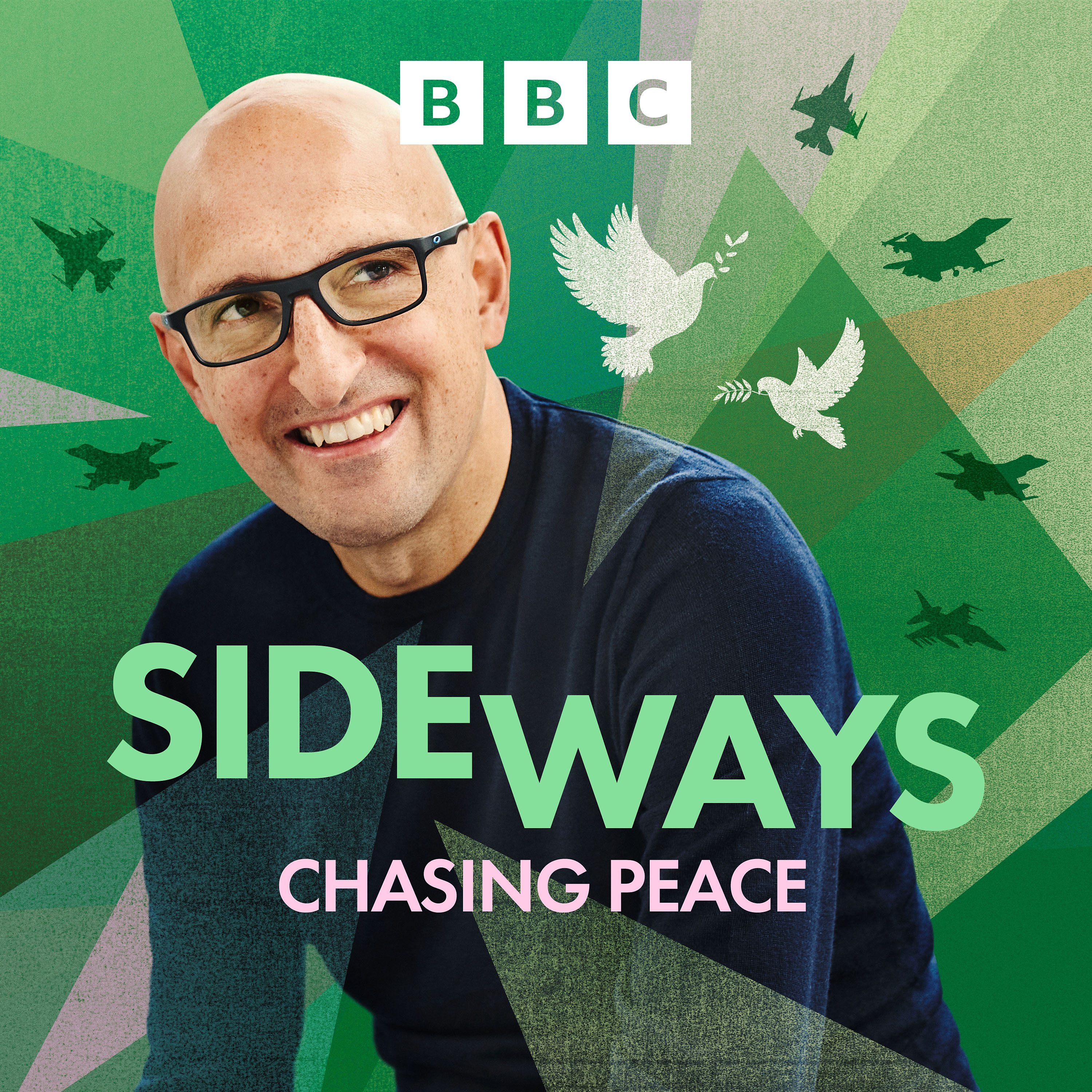
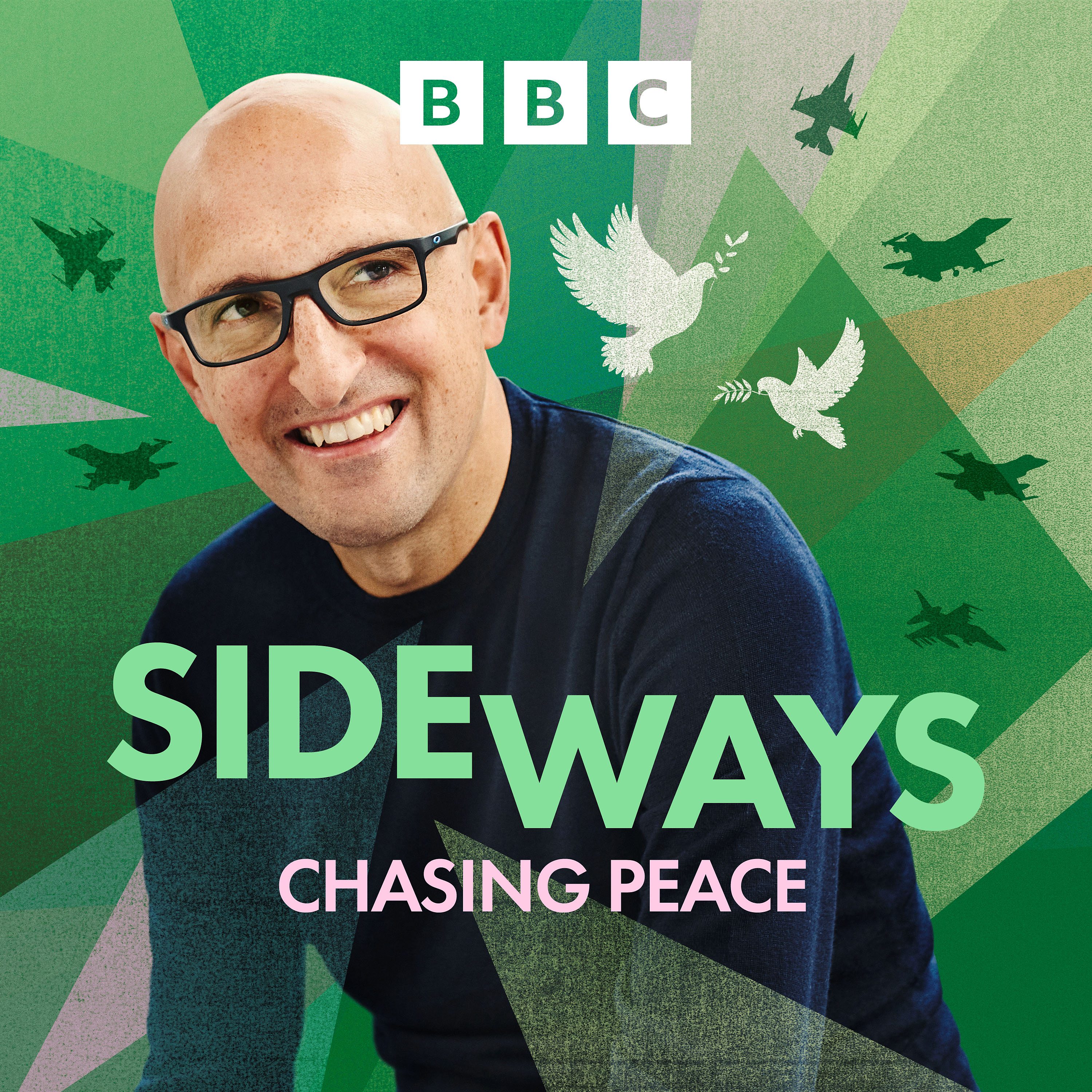
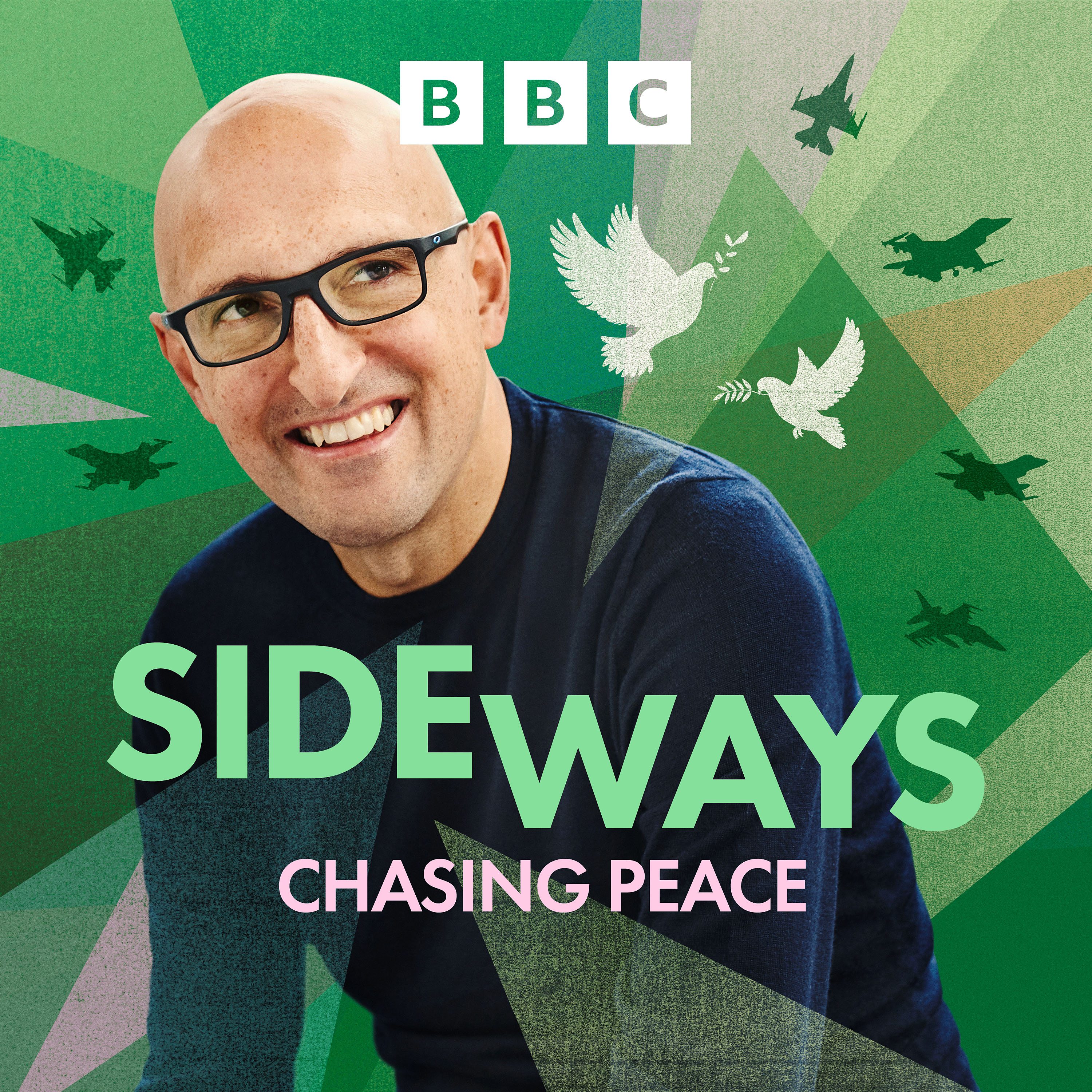
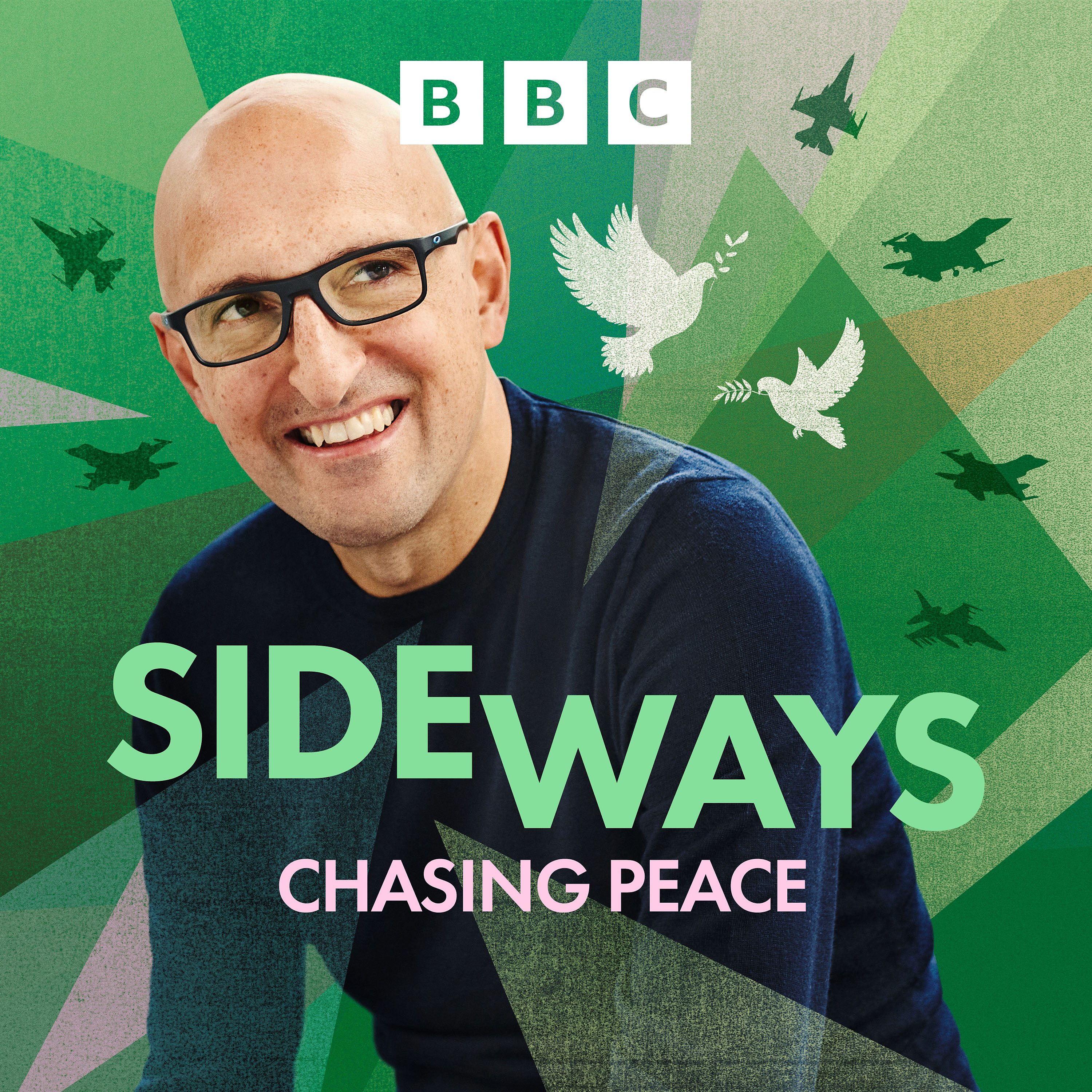
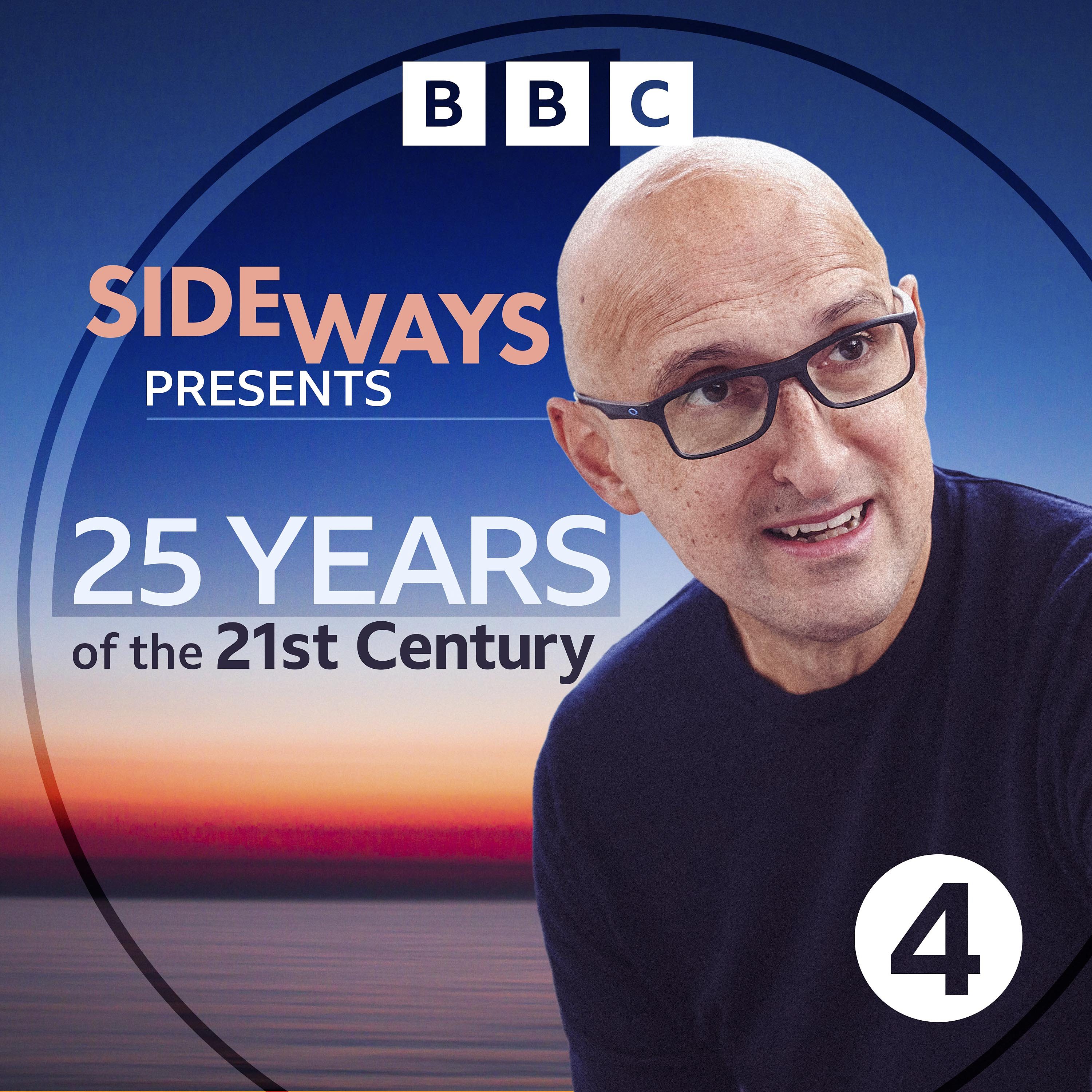



l ol .l 0
check it out! Digital Marketing Strategist in Malappuram https://basilsaman.com/
Now connect this with how universities are treating students as customers and are making key decisions based on student surveys of courses
Another fantastic podcast from the BBC. Recommended and shared to friends.